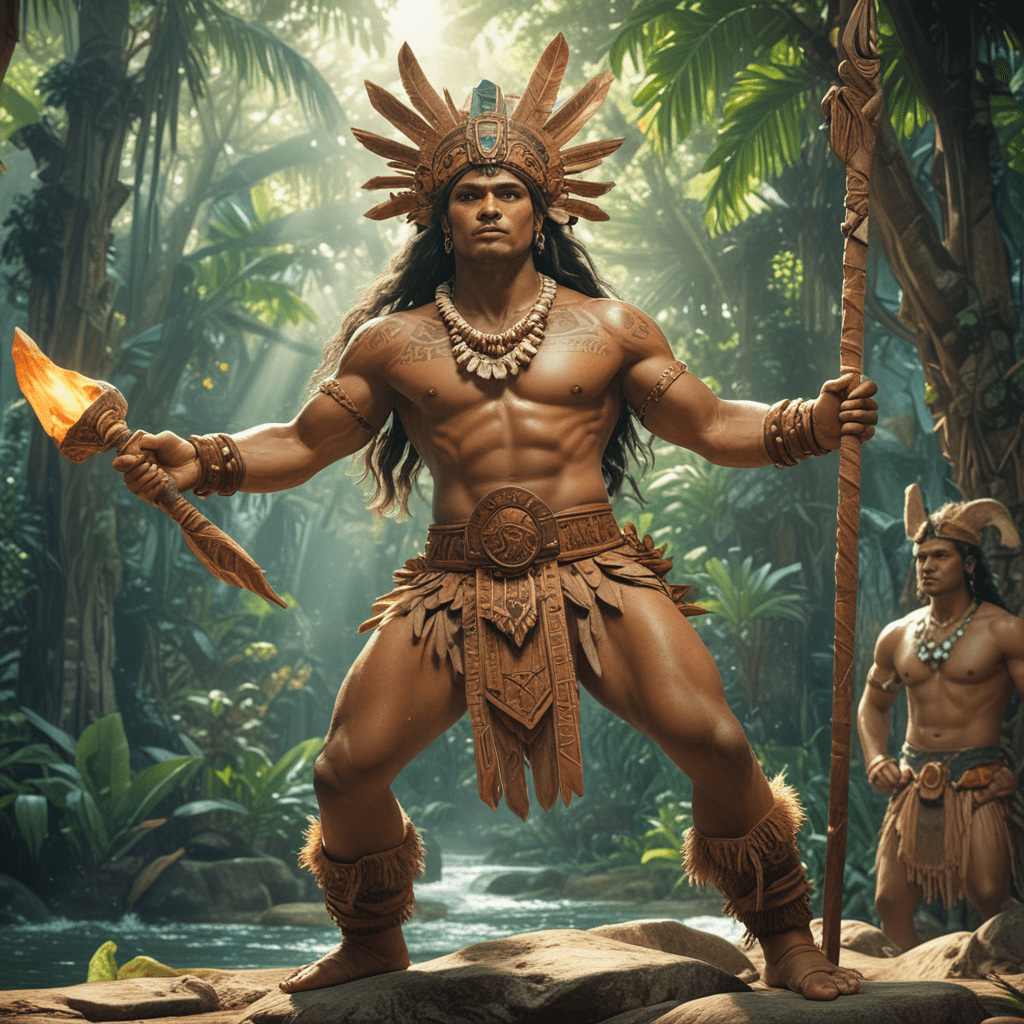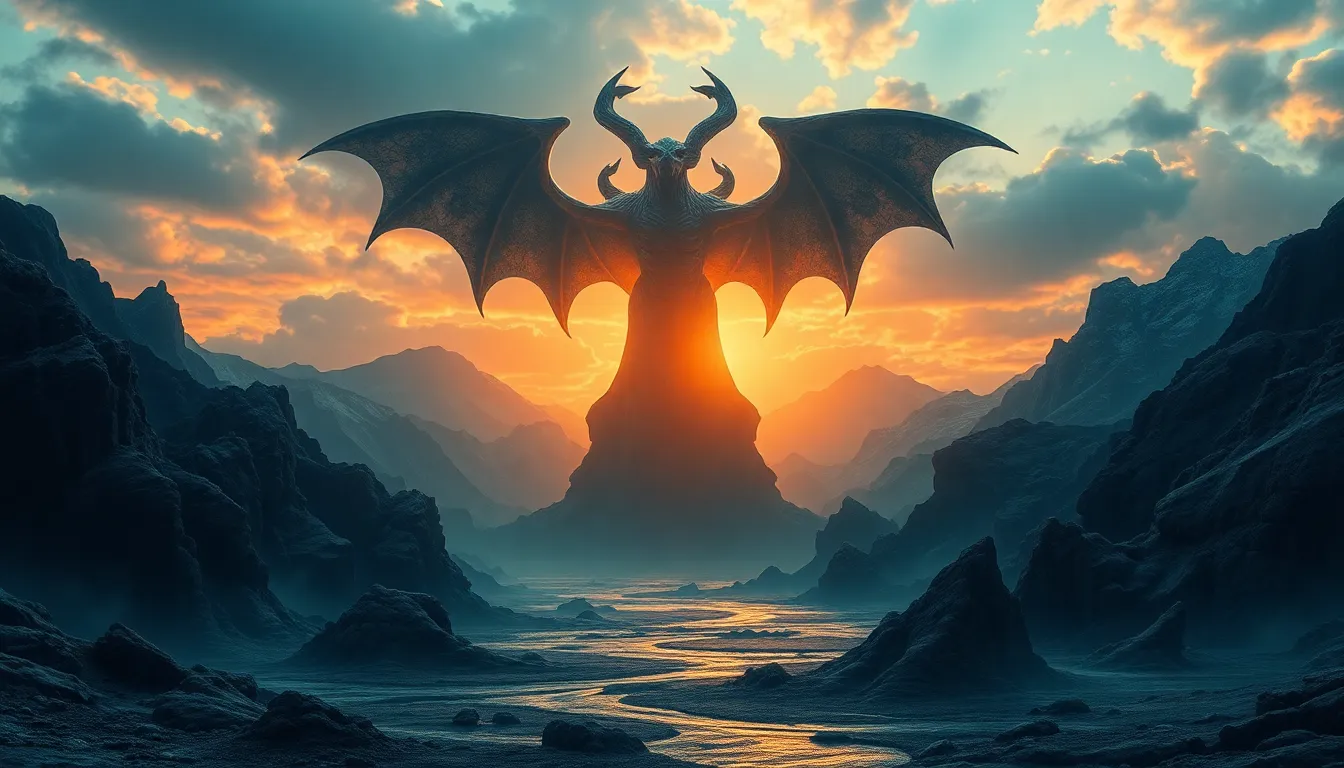Polynesian Mythology: Traditions and Customs
Polynesian mythology, originating from the islands of the Pacific Ocean, encompasses a captivating realm of myths, legends, and cultural practices that have been passed down through generations. This rich tapestry of beliefs and traditions forms an integral part of the Polynesian identity, offering insights into the origins of the islands, the nature of divine beings, and the social order.
I. Introduction:
Polynesian mythology encompasses the beliefs, stories, and traditions of the indigenous peoples of the Polynesian islands, who share a common cultural and linguistic heritage. These islands span a vast geographic region, from New Zealand to Hawaii and Easter Island. Historically, Polynesian mythology has been transmitted primarily through oral traditions, with stories passed down through generations via chants, songs, and performances.
II. Creation Myths:
Polynesian creation myths recount the origins of the islands and their inhabitants. These stories often involve deities or supernatural beings who play an active role in shaping the world. One widely held belief among Polynesian cultures is that the islands were fished up from the primordial ocean by a god-like figure using a magic hook. Other creation myths narrate the transformation of ancient heroes or beings into the islands themselves.
III. Major Gods and Goddesses:
Polynesian mythology features a diverse pantheon of gods and goddesses, each associated with specific aspects of nature, creation, or human affairs. The hierarchy and characteristics of these divine beings vary across different cultures, but certain deities appear prominently in many Polynesian societies. These include Tangaroa, the god of the sea; Tane, the god of the forest; and Hina, the goddess of the moon.
IV. Hero Tales:
Polynesian hero tales recount the legendary exploits of renowned warriors, navigators, and other remarkable individuals. These heroes often possess extraordinary abilities and embark on epic quests, overcoming challenges and vanquishing foes. Their stories serve as sources of inspiration, showcasing virtues such as bravery, loyalty, and resourcefulness. They also highlight the importance of divine assistance, as gods and ancestors frequently intervene in the heroes' quests.
V. Tapu and Mana:
Tapu and mana are fundamental concepts in Polynesian culture. Tapu refers to the concept of sacredness and prohibition, while mana denotes power and authority. Tapu is associated with certain places, objects, and individuals, and violations of tapu can have severe consequences. Mana, on the other hand, is an inherent quality that can be acquired through birth, rituals, or achievements. It is often associated with leaders, priests, and other respected figures.
VI. Rituals and Ceremonies:
Polynesian rituals and ceremonies are deeply rooted in mythology and traditions. These rituals mark significant events in the life cycle, such as birth, marriage, and death. One common ceremony is the "utu," a ritual of exchange and reciprocity that serves to maintain social harmony and balance. Other ceremonies are associated with the seasons, agricultural cycles, and the appeasement of gods.
VII. Navigation and Astronomy:
Polynesian mythology is closely tied to the sea and navigation. The stars, moon, and ocean currents played a crucial role in Polynesian exploration and voyaging. Navigators possessed a deep knowledge of celestial bodies, using them to guide their journeys across vast expanses of the ocean. This knowledge was often passed down through generations of skilled navigators, enabling Polynesians to settle remote islands and maintain connections between distant communities.
VIII. Oral Traditions and Storytelling:
Oral traditions are the lifeblood of Polynesian mythology. Stories, chants, and legends are passed down from generation to generation, preserving cultural heritage and transmitting knowledge. These oral traditions take various forms, including myths, genealogies, and epic poems. Storytelling serves as a way to connect with ancestors, reinforce social values, and celebrate the Polynesian identity.
IX. Influences on Polynesian Mythology:
Polynesian mythology has been influenced by external cultures throughout history. Contact with other island groups, such as the Melanesians and Micronesians, has led to the incorporation of new deities, stories, and cultural practices. Additionally, the arrival of European explorers and missionaries in the 18th and 19th centuries brought about a significant impact on traditional beliefs, as Christianity and Western ideas were introduced.
X. Contemporary Relevance:
Polynesian mythology continues to hold cultural significance in the modern world. It serves as a source of identity, inspiration, and guidance for Polynesian communities around the globe. Cultural preservation and revitalization efforts are underway to safeguard the rich heritage of Polynesian myths and traditions for future generations. Through storytelling, art, and educational initiatives, the legacy of Polynesian mythology remains alive and well, connecting the present with the past.
FAQ:
Q: What are the main themes found in Polynesian mythology?
A: Common themes include the origin of the islands and their inhabitants, the nature of divine beings, the importance of tapu and mana, and the exploits of legendary heroes.
Q: How did Polynesians navigate the vast ocean using only celestial bodies?
A: Polynesian navigators possessed a deep understanding of the stars, moon, and ocean currents, enabling them to traverse vast distances using traditional wayfinding techniques.
Q: What role did storytelling play in Polynesian culture?
A: Storytelling was a central means of preserving cultural heritage, transmitting knowledge, and connecting with ancestors. It also served to reinforce social values and celebrate the Polynesian identity.


